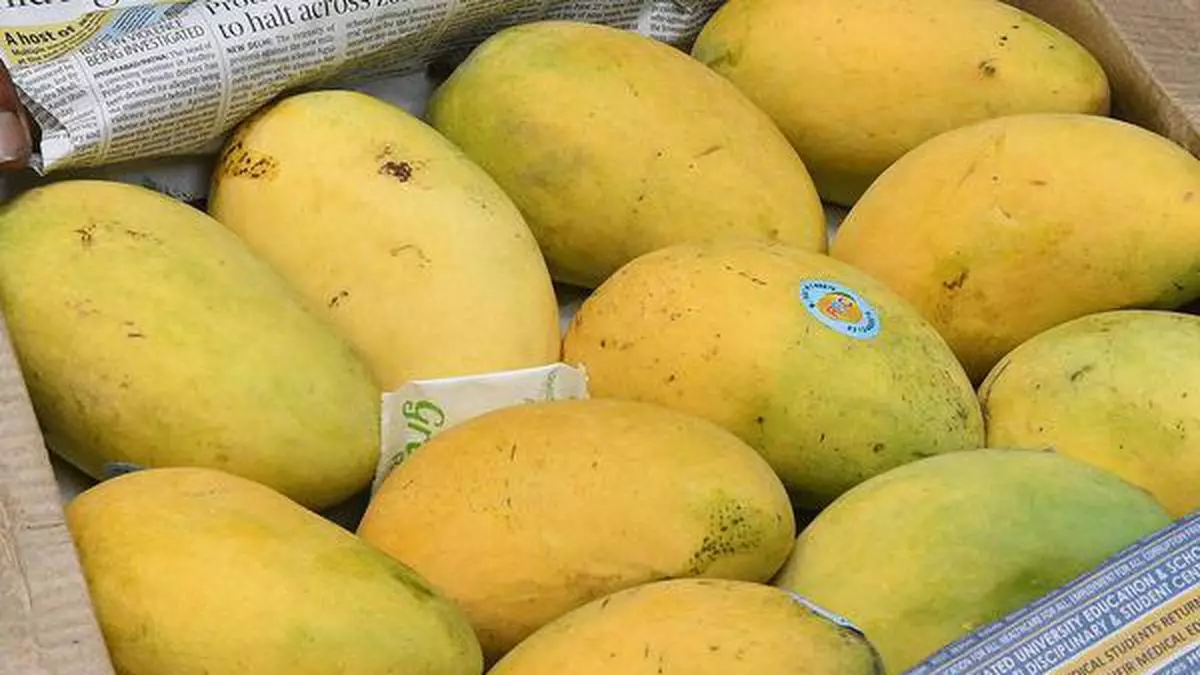Sea protocol for mangoes, bananas, oranges to boost fresh produce exports
Plans are afoot to send trial shipments of mangoes through the sea route this summer to the UK, Russia and Japan and also carry out a trial static run for shipping the fruit to the US. This is part of the government’s recent efforts to develop sea protocols for increasing exports of fresh produce at lower costs to distant markets, sources have said.
The Agricultural and Processed Food Products Export Development Authority (APEDA) under the Commerce Department has teamed up with Indian Council of Agricultural Research (ICAR) institutes to work out sea protocols for items such as oranges, bananas and pomegranates to different markets after successfully shipping bananas to the Netherlands and pomegranates to the US, a Commerce Ministry official told businessline.
“Sending consignments in ships is much cheaper than sending them by air as it increases cost competitiveness of exports. It also enables huge quantities to be exported while with air transport there is limitation of quantity. Most importantly, it helps exporters tie up with markets which have substantial demand for a particular produce and want suppliers that can meet this demand. Therefore, it helps develop long-term demand from big markets which leads to stability of prices and certainty of demand,” the official explained.
No cap on quantity
For instance, India already exports mangoes to the US but as it is sent as air cargo, just an annual $30-40 million gets exported. The quantity is minimal compared to the mangoes Americans consume, which could be over $1 billion, the official pointed out. “Once India starts sending mangoes by sea, large consumers such as the US would possibly like to stay connected with India in a big way for supplies as it would finally be in a position to meet large demands. Developing sea protocol for fresh produce will allow developed countries or large consuming countries to look at India as a favoured supplier,” the official added
It would also help establish a long-term relationship with large buyers which is essential for farming community as it leads to stability of prices and certainty of demand, he said.
India’s exports of fresh fruits and vegetables, which increased 13.9 per cent in April-February 2023-24 to $3.65 billion, is expected to get a further shot in the arm with the use of sea route for transportation.
Sea protocols determine at what stage of maturity a fruit should be harvested and the temperature that should be set during transportation to ensure that it reaches its destination in top shape. Different sea protocols have to be determined for shipping various fresh food items to different destinations, varying with distance.
Trials planned
APEDA is developing sea protocols for mangoes in collaboration with ICAR-CISH Lucknow. Trial shipments of Banganapalli from Southern India to UK and Russia has been planned for the months of May and June, of Kesar from Western India to Japan plan is planned for May, and of Dashehari and Chausa from Northern India to Russia is planned for June.
Two static trials of Chausa and Banganapalli for the US are also planned for May and June following which the actual exports can take place, the official added.
APEDA has also carried out two trials for bananas, of which the recent one to Rotterdam has been very successful, while the earlier one to Russia was not. “We are now coming up with a new trial for shipping bananas to Russia which will happen in May,” the official added.
Sea protocols are also being developed for shipping oranges to the Gulf countries, ginger from the North-East to the UK and pineapples from the North-East to the Gulf countries.
